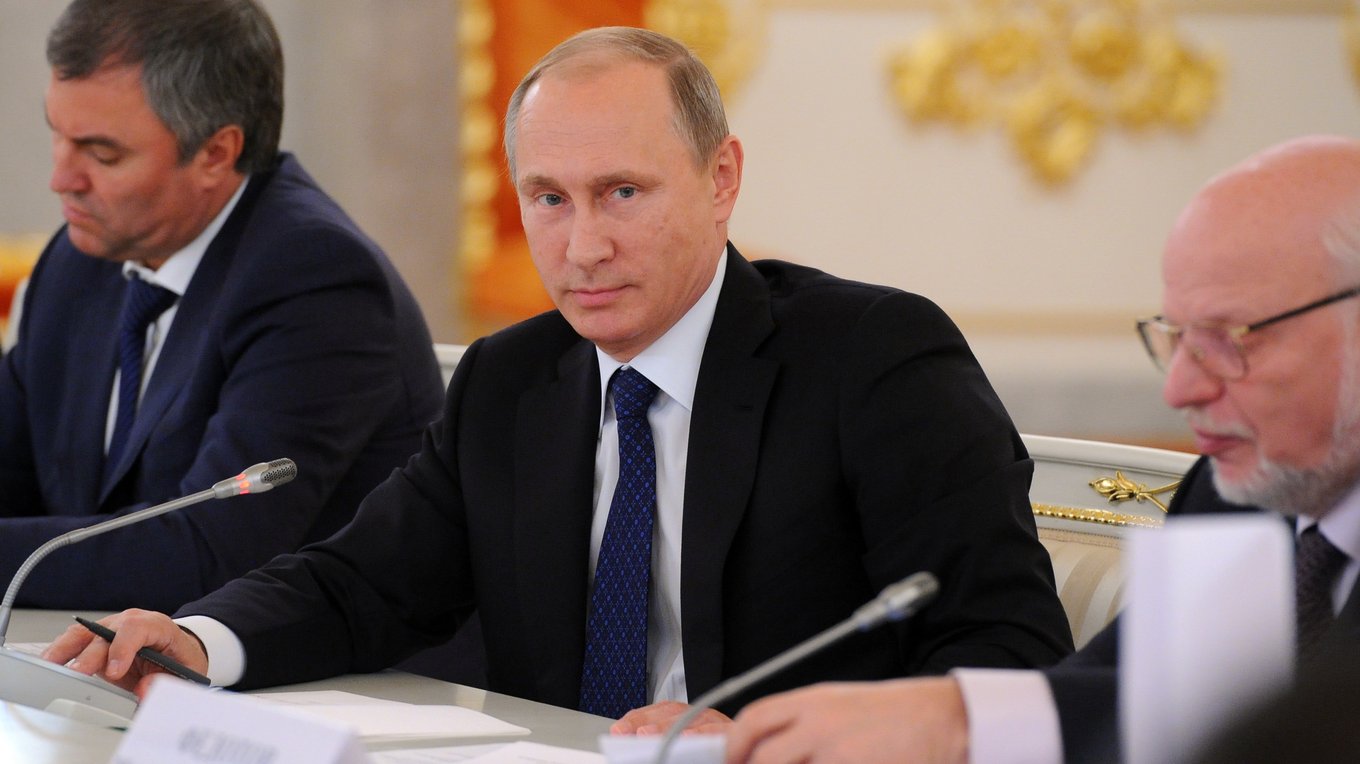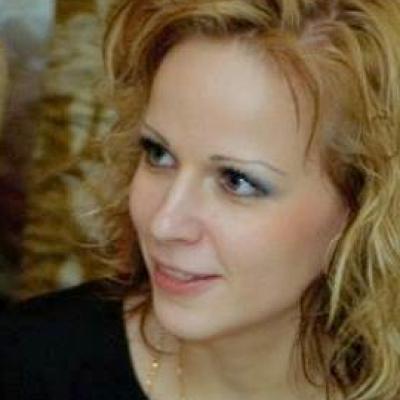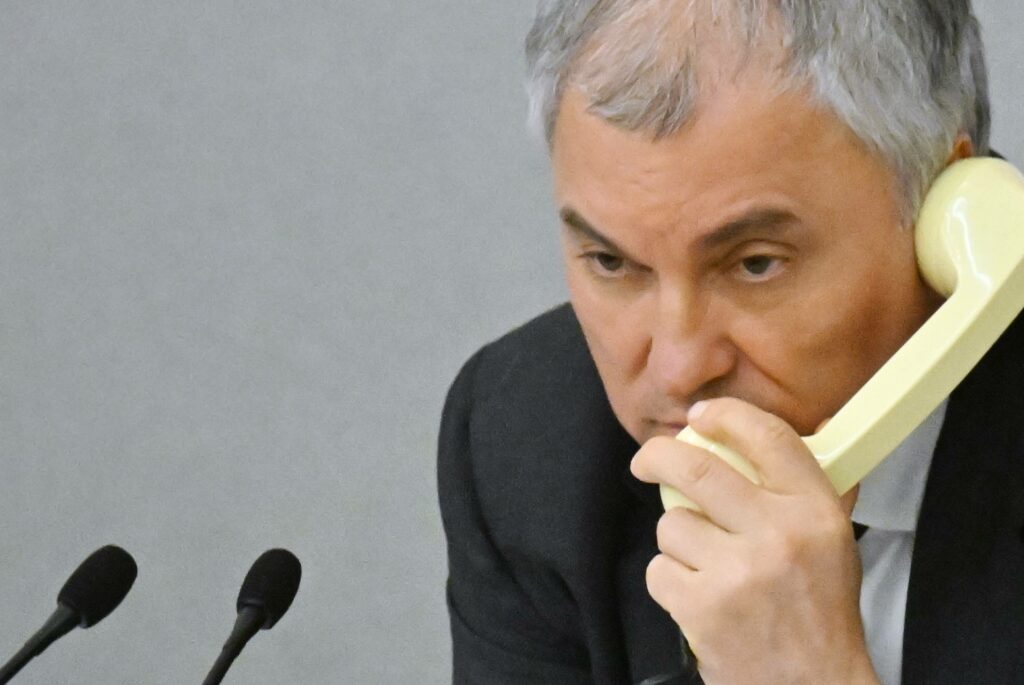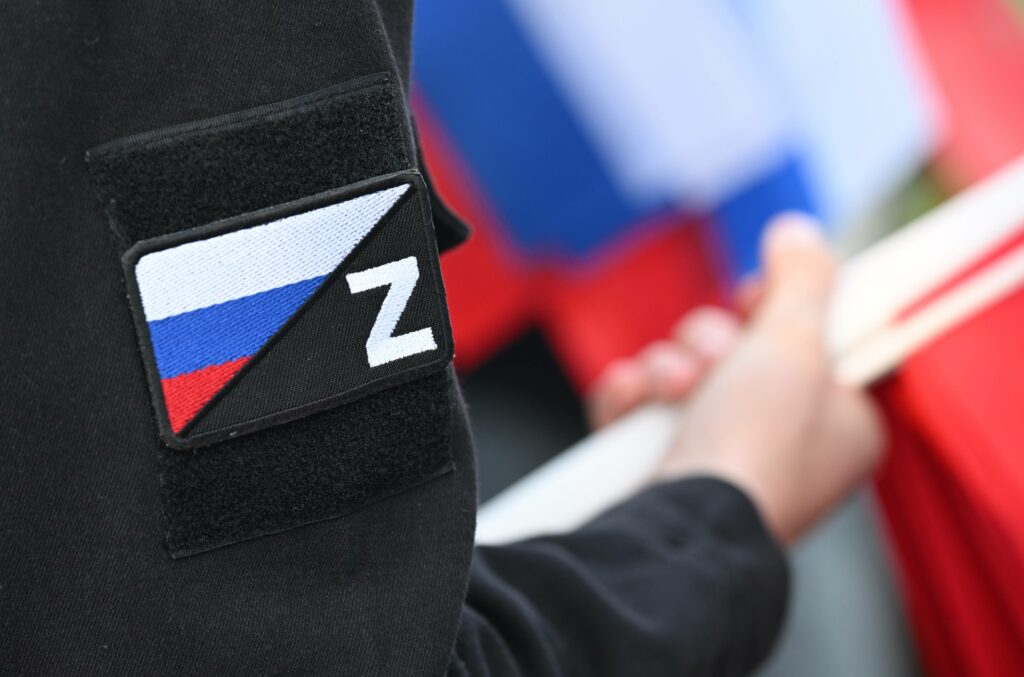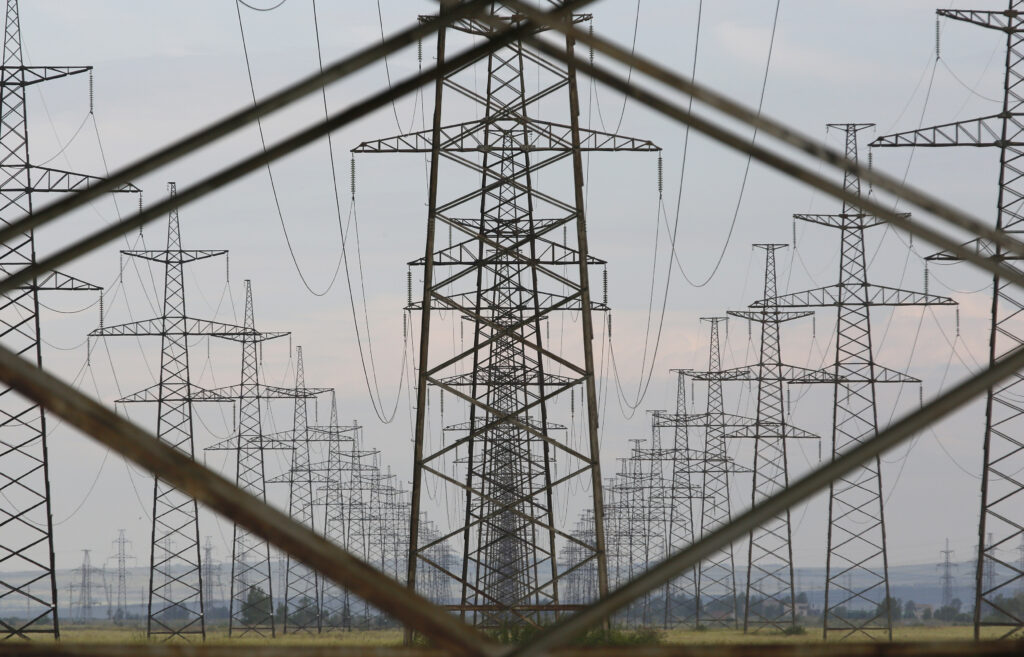We often hear the phrase “the Putin regime”. People speak about “the end of the Putin regime”, and what Russia will be like “when the Putin regime collapses.” It is assumed that if Putin disappears, his regime will disappear, too. This ‘politicized’ causal relationship has many advantages and is governed by a certain logic. But is it really justifiable to declare that Putin’s departure will mark the end of his regime?
To analyze the regime’s prospects, we should look at it in two parts: the formal institutional structure, and a parallel Putin regime. The first is about the functioning of key political institutions set out by and stipulated in the Russian Constitution and federal legislation: the presidency, parliament, elections, parties and government etc. The way things would function in the case of Putin’s departure – whatever form that takes – is quite clearly laid out in law. The Constitution envisages three instances of premature cessation of presidential power: resignation; a persistent inability to exercise presidential power due to health reasons; and finally, impeachment, i.e. dismissal from the presidential post. We can also add resignation due to expiry of the term of office, which came due in 2008. In the case of early dismissal, the prime minister takes over the presidential duties and elections are held no later than three months from the date of termination of the president’s duties.
If Putin announced his early resignation (for whatever reason) tomorrow, Prime Minister Dmitry Medvedev would become acting president, and elections would be set. Trust is key here. Putin’s full trust in Medvedev is critical – he must trust that whoever he transfers the power of head of state to will not make stupid mistakes or engage in dirty tricks. He must also trust that the prime minister is not a dangerous competitor. The prime minister could turn out to be the most dangerous competitor a priori should he have greater political ambitions. This is institutionally implied regardless of their real political heft. In this case, Putin can trust that Medvedev will play his familiar role of locum tenens again.
The result is that the system of formal power institutions functions without formal violation of constitutional mechanisms. However, the whole system functions only formally – the current mediocre government has almost failed to adopt a single significant decision in the last four years. Then there is the parliament, which has been labelled ‘the maddened printer’; the presidential administration, which oversees the legal capacity of this political system and manages the presidential schedule; and the systemic parties with no real inclinations towards opposition (real opposition is publicly and fundamentally against Putin). All of the formal, official, power institutions are littered with cog-like mediocre politicians. The system is built in such a way that one must swim with the current to succeed. The channels of political movement are filled with those implementing decisions with limited political subjectivity. Some subjectivity becomes apparent only in the context of competition for either the right to be even more pro-Putin in some cases (“conservatory initiatives” by Duma deputies), or the right to maintain one’s position in other cases (for example, when the Communist Party of the Russian Federation (CPRF) organizes demarches as a sign of protest against the results of regional elections). All the seats are allocated and the roles distributed. And this is not the Putin regime at all – this is its institutional reflection.
The parallel reality, the real “Putin regime”, functions completely differently from the official system of power, and via very different institutions.
This regime is “the vertical of power” which Putin employed during his first term in office and which delineated the restoration of statehood across the entire territory of Russia (for prevention of separatist threats), veiling federal reform, curbing Chechnya, and politically castrating the corpus of governors, and many others. A single “vertical” meant a single legal space and the hierarchy of the executive branch: the president, government and governors. It was about building the verticality of the system of bodies of the executive branch.
In practice “the vertical” has absorbed everything over the years: the federal parliament ended up being fully subordinated to the presidential administration. The government is de facto headed by the president, who is not the head of the executive branch of power according to the Constitution. Regional governors are deprived of political autonomy, whereas their dependence on the federal government has been significantly increased. Since mayoral elections started to be abolished everywhere, the vertical has virtually reached the level of local self-government, which does not constitute a system of national administration according to prime law. Legislative branches of power have turned into appendages of the executive bodies. “The vertical” is now about the decisions taken on whether to dismiss a mayor or not, to give municipal signatures to candidates for governors representing the CPRF or not – decisions taken by the Kremlin. And this has nothing to do with the formal mechanisms which have nevertheless slowly been adjusted and harmoniously brought into compliance with the informal institutions throughout the 15 past years.
The second issue in all of this is the party in power. United Russia is the country’s first successful post-Soviet experience in terms of building a large structure, effective from the point of view of political governance. Not only does it ensure the Kremlin’s control of parliament, but to a great extent it also enables control of regional political processes, especially in recent years. Members of United Russia hold a majority in all regional parliaments, and nearly all the governors are members.
A third issue of interest here are the electoral ratings. These are a critically important institution of the Putin regime, and the basis for everything else, as is commonly believed. The electoral ratings constitute the very cement which holds all the other institutions together and turns them into a single synchronized mechanism. Imagine that Putin’s electoral rating fell to 5%. What would happen to his key institutions? The ruling party would immediately face two systemic risks: integrity and the probability of being elected. The ability of United Russia to obtain a relative majority in the State Duma is one of Putin’s successes and a consequence of his popularity. No Putin – no United Russia. If Putin has 5%, United Russia will have 3%. This has been confirmed by all examples of all the ruling parties that ever existed in Russia and which have been mere reflections of the extent of the support for the president. But what would be even more frightening if Putin’s electoral rating fell is that the ruling party would begin to shrivel and crack. Yesterday’s ordinary patriots, conservatives and defenders of traditional values would start speaking of blunders made by those in power, of the personality cult of Putin, and would double down with their own political projects. A dozen mini-projects would then emerge in the place of one large party.
The parliament would no longer be “the maddened printer” and would become a forum for discussion. Governors would recall that they had been elected by the people and not appointed by the Kremlin. But it is worth remembering that now, without the Kremlin’s watchful supervision, any strong governor who wants to be elected, can be. This is a political and institutional possibility available under the current system. So why don’t the governors take advantage of this? For two simple reasons. To begin with, Putin is entitled to dismiss governors “for loss of trust”. And secondly, Putin has security officers (siloviki) at his disposal who will come and put them behind bars, after having “discovered” golden toilet bowls in their homes and diamond pens in their offices. So now let us imagine that Putin has a 5% rating, and that attempts to sweep the legitimately elected governor turn into a rally when many thousands take to the streets. A political conflict emerges. It is not certain that the president will win. But should his ratings remain high, the legitimacy of Putin’s activities will appear to outweigh the legitimacy of the activities of the competing governor.
Fourthly, there is the matter of informal “government”, in the broad sense of the word. There is the official government which makes decisions (or does not), and there is the informal circle of people whom Putin constantly consults. These are the siloviki, “systemic liberals”, and of course, “friends” (the Rottenbergs, Kovalchucks, Shamalovys etc.). This circle may also include Russian “caretakers”. This is a separate category of people who are entrusted with the task of managing larger state assets, projects/construction works, territories or even entire functions. They are the workhorses of the Putin regime. For example, Sobyanin is in charge of Moscow, Volodin – domestic policy, Surkov – Ukraine etc. And given this situation, it becomes clear why there is no clear-cut state economic policy: no one has been entrusted with the task of economic growth. For example, Medvedev is entrusted with the task of filling the role of prime minister, not of developing the economy. He does not even have the leverage to do so. The State Duma listens to the Kremlin and not the prime minister (which brings us back to the question of the “price” of Medvedev’s “leadership” of the ruling party).
The fifth issue is that of the “institutions-missions”, which according to Putin are irreplaceable – unlike the “caretakers” – and can be individuals or structures. For example, Ramzan Kadyrov is the most vivid example of a person-mission. He has not only been assigned a specific task (keeping Chechnya in one piece), but has become an integral part of the Putin regime, just like the ruling power or electoral ratings. Kadyrov is to Putin what Putin is to Putiners; Putin is Russia and Kadyrov is Chechnya. So these are cases of personalities and official institutions merging. Another example: the All Russia People’s Front (ONF) – so far, a completely exceptional structure looking for a place within the political system, and gaining political momentum with cosmic speed. The Security Council, which has suddenly become more in demand than the government, has become the institution-mission. This strange bunch of military and KGB servicemen is now discussing Russia’s trade policy, state-of-the-art technologies and import substitution. The Agency for Strategic Initiatives has in fact become the Ministry of Economic Development.
All of these institutions of the Putin regime are the flesh and blood of its decision-making mechanisms. The rest are left outside this process and are devoted to its management. All of these institutions are “tied” to the name of Putin. This is why it is not illogical to assume that if Putin was not in power for one reason or another tomorrow, all of the invisible ties of management would be severed.
However, they might not be severed. Today’s political system is endowed with a huge need for self-preservation, and should Putin stop being the guarantor of its stability, it will immediately step into the fray in search of a “new Putin”. As discussed, Putin’s electoral rating is the “cement” of his regime. But the ratings don’t only measure Putin as a person, but also his various “Putinisms”: anti-Americanism, Crimea-ourism, populism, conservatism, paternalism, etc. Putin has turned out to be an attractive politician to the people, since he has successfully met various needs formed at the turn of the new millennium, while the availability of resources to meet these needs has ensured the success of his political leadership. Therefore, objectively, the pro-Putin forces might gain the political upper hand and become the most promising choice post-Putin. Their success will also be dependent on the availability of the resources held by the state, and these forces might turn out to be much more radical, authoritarian and conservative than Putin. So they could become the “second edition” of the Putin regime – and even tougher and more repressive. Besides, there may be various options for the transformation of the Putin regime depending on how he leaves, whether voluntarily or not, and the level of his popularity.
The Putin regime as a set of stand-alone institutions is so ingrained in the system of governance that Putin has become just one element of it. The “survival potential”, the margin of safety of his institutions, is extremely high. Firstly, there is still a social demand for this regime. This is huge political capital – whoever has it, has Russia. Secondly, Putin’s institutions exhibit an incredible inertia which cannot be stopped just like that. . And that is quite another matter, not directly related to the figure of Putin.
